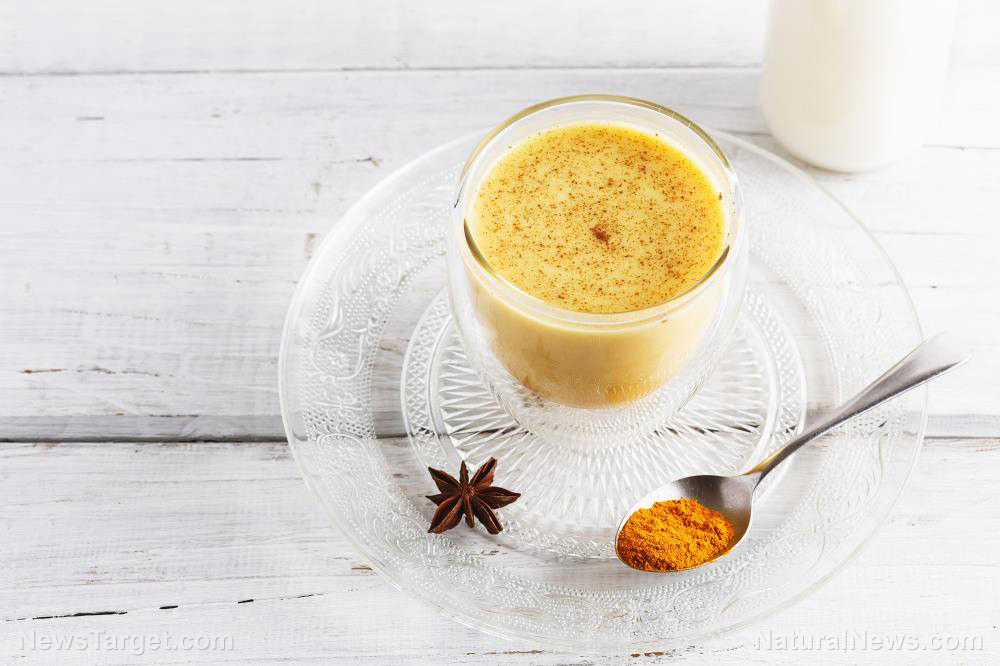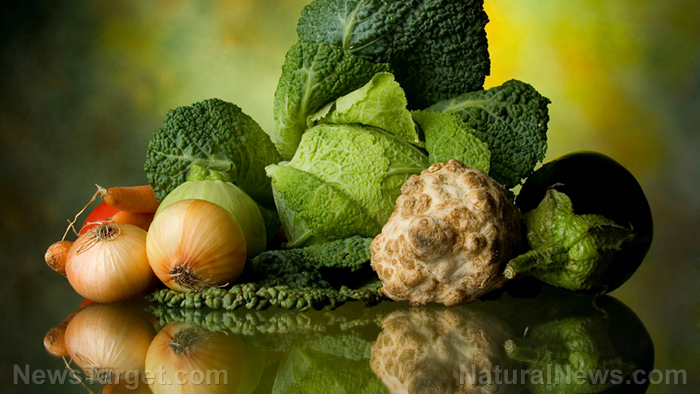Homegrown medicine: Local yarrow from the Middle East shown to have gastroprotective properties
05/06/2021 / By Evangelyn Rodriguez

Gastric or stomach ulcers are open sores that develop along the lining of the stomach. When they occur in the first part of the small intestine, they are called duodenal ulcers. Gastric ulcer is the most prevalent gastrointestinal disorder in the world, affecting about 5 percent of the world’s population.
Gastric ulcers can be caused by many things, such as poor dietary habits, smoking, infection by the gut bacterium Helicobacter pylori and the use of non-steroidal anti-inflammatory drugs (NSAIDs). According to previous studies, extensive use of NSAIDs, particularly aspirin and indomethacin, is responsible for 25 percent of gastric ulcer cases worldwide.
To manage NSAID-induced gastric ulcers, physicians often prescribe antiulcer medications like ranitidine and omeprazole. However, ranitidine, sold under the brand name Zantac, can cause various side effects, which include headaches, diarrhea, fatigue, insomnia, impotence and muscle pain, among others. Similarly, omeprazole (Prilosec and Prilosec OTC) is linked to adverse effects that range from body aches and constipation to blisters, red or irritated eyes, loss of appetite and unusual bleeding or bruising. Because of the unpleasantness caused by these medications, researchers are looking for safer alternatives that are easily accessible for many.
Achillea wilhelmsii, commonly known as yarrow, is a medicinal plant that can be found in different parts of Iran. Widely used in Traditional Persian Medicine, yarrow has been found to have anti-hypertensive and anti-hyperlipidemic properties, thanks to its abundance of flavonoids and sesquiterpene lactones. A study published in the Journal of Inflammatory Diseases also found that A. millefollium, another species of yarrow, has wound-healing properties that can help treat gastric ulcers. (Related: Get rid of your gastric ulcers NATURALLY with snake gourd.)
To determine if the local variety of yarrow in their country has the same properties, Iranian researchers decided to test hydro-alcoholic extracts of the plant on rats with indomethacin-induced gastric ulcers. They also conducted proteomic and metabolomic analyses to determine which proteins and metabolites are affected by the extract. The researchers reported their findings in an article published in BMC Complementary and Alternative Medicine.
Iranian yarrow promotes healing of indomethacin-induced gastric lesions
For their experiment, the researchers divided 20 rats into four groups: Group 1, the normal control, received nothing but deionized water, while group 2 received only 1 percent carboxymethyl cellulose (CMC) solution. Group 3 received a single dose of 45 mg/kg indomethacin with CMC as the vehicle, while group 4 received the same dose of indomethacin plus 800 mg/kg body weight yarrow extract. Treatment for all four groups lasted for 10 days.
Pre- and post-treatment, the researchers collected serum and tissue samples and conducted spectrometric analyses for the metabolomic study. For the proteomic analysis, they conducted 2D gel electrophoresis followed by liquid chromatography coupled with mass spectrometry. They confirmed relevant genes using real-time PCR.
The researchers reported that a panel of metabolites showed altered expression levels during gastric lesion development. Some of these metabolites returned to near-normal levels after treatment with the yarrow extract. The researchers also found that the extract reduced the levels of various proteins that are overexpressed in rats with gastric ulcers. These proteins include transgelin (Tagln), which promotes gastric cancer development; galectin-7 (Lgals7), an anti-inflammatory mediator; heat shock protein beta-1 (Hspb1), which helps protect against gastric stressors like NSAIDs; myosin regulatory light polypeptide-9 (Myl9), which enhances tumor progression; and fatty acid-binding protein 5 (Fabp5), which promotes tumor formation.
Based on these findings, the researchers concluded that Iranian yarrow is an effective natural treatment for indomethacin-induced gastric ulcers.
Sources include:
Tagged Under: alternative medicine, digestion, gastric lesions, gastric ulcer, gut health, herbal medicine, Herbs, natural cures, natural medicine, remedies, research, Yarrow
RECENT NEWS & ARTICLES
COPYRIGHT © 2017 NATURAL MEDICINE NEWS





















